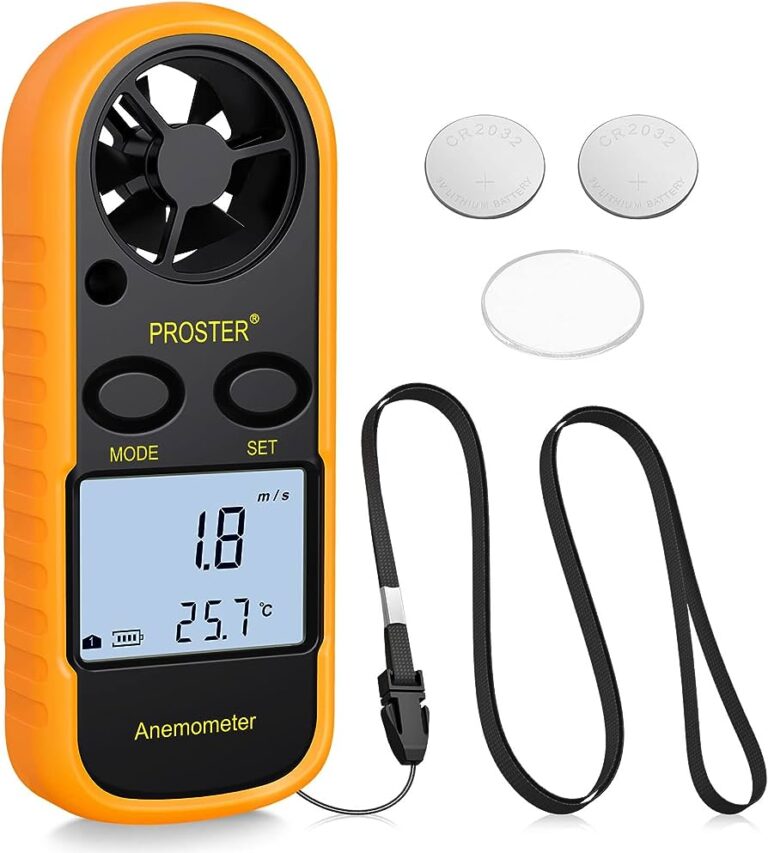To start an online fishing tackle business, establish a website, source quality products, and market your business through seo and social media. The fishing industry is thriving, and with more people turning to outdoor activities, starting an online fishing tackle business can be a lucrative venture.
Whether you’re a fishing enthusiast or simply an entrepreneur seeking a new opportunity, this guide will walk you through the essential steps to get started. From setting up a professional website and sourcing high-quality fishing products to implementing effective marketing strategies, this article will provide you with the necessary knowledge and insights to launch and grow your online fishing tackle business successfully.
So, let’s dive in and discover how you can turn your passion for fishing into a profitable online enterprise.

Credit: www.nytimes.com
Understanding The Market Potential
Recognizing The Growing Demand For Fishing Tackle Online
With the advent of technology and the increasing popularity of online shopping, starting an online fishing tackle business has become an enticing opportunity for aspiring entrepreneurs and fishing enthusiasts. Understanding the market potential is crucial to ensure the success of your venture.
Here are the key points to consider:
- The fishing tackle market has been experiencing significant growth due to the increasing interest in recreational fishing. According to market research, the global fishing tackle market is projected to reach a value of $2.88 billion by 2025, with a compound annual growth rate (cagr) of 4.5%.
- Online shopping has become the preferred method for many consumers to purchase fishing tackle due to its convenience and accessibility. This shift in consumer behavior presents a lucrative opportunity for online fishing tackle businesses to tap into this growing market.
- The convenience of browsing and purchasing fishing tackle online has attracted a wide range of customers, including experienced anglers, beginners, and even gift buyers. By offering a seamless online shopping experience, you can cater to the diverse needs and preferences of this target audience.
- E-commerce platforms have made it easier than ever to set up an online store without the need for extensive technical knowledge. With a user-friendly website and effective digital marketing strategies, you can reach a broader customer base and achieve a higher conversion rate.
- Mobile commerce, or m-commerce, has also played a significant role in the growth of online fishing tackle sales. With the increasing use of smartphones and mobile apps, customers can easily browse, compare prices, and make purchases on the go, further expanding the market potential for online fishing tackle businesses.
Identifying Key Market Trends And Opportunities
To capitalize on the growing demand for fishing tackle online, it is essential to identify the key market trends and opportunities. By staying ahead of the curve, you can attract more customers and stay competitive in the online fishing tackle industry.
Consider the following points:
- Sustainable and eco-friendly fishing tackle products are gaining traction in the market as more environmentally conscious consumers prioritize green alternatives. By offering a range of eco-friendly options, you can appeal to this niche and differentiate your business from competitors.
- Personalization is becoming increasingly important in the online shopping experience. Customers appreciate tailored recommendations and personalized offers based on their fishing preferences, location, and past purchases. Implementing personalized marketing strategies can significantly enhance customer satisfaction and loyalty.
- Social media platforms provide a valuable opportunity for online fishing tackle businesses to engage with their target audience, build brand awareness, and drive traffic to their websites. By utilizing social media marketing tactics, such as posting informative content, running contests, and collaborating with fishing influencers, you can effectively reach and connect with your potential customers.
- Embracing technological advancements, such as virtual reality (vr) and augmented reality (ar), can revolutionize the online shopping experience for fishing tackle. These immersive technologies enable customers to visualize and try out products virtually, enhancing their confidence in purchasing online and reducing product returns.
- Collaboration with fishing enthusiasts and experts can provide valuable insights and endorsements for your online fishing tackle business. Consider partnering with local fishing clubs, guides, or professional anglers to promote your products and establish credibility within the fishing community.
Analyzing The Competitive Landscape
Understanding the competitive landscape is essential when starting an online fishing tackle business. Analyzing your competitors can help you identify market gaps, differentiate your offerings, and develop effective marketing strategies. Consider the following points:
- Research and analyze your direct competitors, including both online fishing tackle retailers and physical stores. Assess their product range, pricing strategies, customer reviews, and overall brand positioning.
- Identify their strengths and weaknesses, such as unique product offerings, customer service, or marketing tactics. Understanding these aspects can help you refine your own business strategies and improve upon their shortcomings.
- Keep an eye on new entrants to the market and monitor any emerging trends or product innovations they introduce. This will enable you to adapt quickly and stay competitive in a rapidly changing industry.
- Leverage keyword research tools and seo techniques to identify search terms and topics that are highly relevant in the fishing tackle industry. By optimizing your website content and product descriptions, you can increase your visibility in search engine results and attract more organic traffic.
- Regularly track and monitor industry news, market research, and consumer trends related to fishing tackle. This will help you stay informed about any shifts in consumer preferences, industry regulations, or technological advancements that may impact your business.
By recognizing the growing demand for fishing tackle online, identifying key market trends and opportunities, and analyzing the competitive landscape, you’ll be well-equipped to start and grow a successful online fishing tackle business. With careful planning, strategic execution, and a customer-centric approach, you can establish your brand and carve out a profitable niche in the thriving online fishing tackle market.
Establishing Your Online Presence
Building An Engaging And Seo-Optimized Website
When it comes to starting an online fishing tackle business, establishing a strong online presence is crucial. Building an engaging website that is also optimized for search engines will help you attract and retain customers. Here are some key points to consider when setting up your website:
- Choose a user-friendly website platform: Selecting the right platform for your website is essential. Look for an ecommerce platform that is easy to use and allows you to customize your site to reflect your brand. Some popular options include shopify, woocommerce, and bigcommerce.
- Create a visually appealing design: Your website’s design should be visually appealing and align with your target audience’s preferences. Use high-quality images, professional logo, and a clean layout to make a positive impression on your visitors. Utilize a responsive design to ensure that your website looks great on both desktop and mobile devices.
- Develop clear navigation: Easy navigation is critical for user experience and helps visitors find what they are looking for quickly. Organize your product categories logically and use clear labels for your navigation menu. Incorporate a search bar to make it convenient for customers to find specific products.
- Craft compelling product descriptions: Well-written product descriptions are essential for both engaging your customers and boosting your website’s search engine rankings. Each description should be unique, informative, and highlight the key features and benefits of the product. Take the time to write compelling descriptions for each item in your inventory.
- Use high-quality images: High-resolution images that clearly showcase your fishing tackle products are essential for attracting customers. Invest in professional product photography or consider using manufacturer-supplied images if they are of high quality. Optimize the images for web by compressing their size without compromising on quality to ensure fast loading times.
- Optimize website loading speed: Page loading speed is a crucial factor for both user experience and search engine optimization. Optimize your website’s loading speed by compressing image files, minimizing code, and leveraging browser caching. Use a content delivery network (cdn) to ensure that your website performs well across different geographical locations.
- Implement on-page seo techniques: To improve the visibility of your website in search engine rankings, you need to optimize each page for relevant keywords. Use descriptive meta titles and meta descriptions, incorporate keywords in your page content, and create unique urls for each page. Ensure that your website is mobile-friendly and has a responsive design.
- Integrate social media: Leverage the power of social media by integrating social sharing buttons on your website. This allows visitors to easily share your products with their followers, increasing exposure and potentially driving more traffic to your site. Additionally, actively engage with your audience on social media platforms to build brand loyalty.
- Provide excellent customer support: Building trust with your customers is crucial for the success of your online business. Offer various channels for customer support, such as live chat, email, and phone support. Respond promptly to customer inquiries and provide helpful advice to establish a positive relationship with your audience.
- Regularly update and optimize your website: Your online fishing tackle business is an ongoing endeavor. Regularly update your website’s content, add new product listings, and optimize for new keywords to stay relevant in search engine results. Monitor website analytics to track your website’s performance and make necessary improvements.
By following these strategies for building an engaging and seo-optimized website, you can create a strong online presence for your fishing tackle business and attract customers from across the globe. Remember, a well-designed website coupled with effective seo techniques will play a significant role in the success of your online venture.
Driving Traffic And Converting Customers
Starting an online fishing tackle business can be a thrilling endeavor filled with opportunities to connect with fellow anglers and provide them with quality gear. However, driving traffic to your website and converting visitors into customers is crucial for the success of your business.
In this section, we will explore some effective digital marketing strategies to help you achieve these goals.
Implementing Effective Digital Marketing Strategies
To attract customers and generate sales for your online fishing tackle business, it is important to implement effective digital marketing strategies. Here are some key points to consider:
- Search engine optimization (seo): Optimize your website with relevant keywords, meta tags, and quality content to improve your search engine rankings.
- Content marketing: Create engaging and informative blog posts, articles, and videos to establish yourself as an authority in the fishing industry and drive organic traffic.
- Pay-per-click (ppc) advertising: Consider investing in targeted ppc campaigns on platforms like google adwords to drive immediate traffic to your website.
- Influencer marketing: Collaborate with popular fishing influencers to reach their dedicated followers and increase brand awareness.
- Video marketing: Leverage the popularity of video content by creating engaging product demonstrations, fishing tutorials, or entertaining fishing stories to attract and engage your audience.
- Guest blogging: Contribute guest posts for fishing-related websites and include a link back to your website to increase your online visibility and drive qualified traffic.
- User-generated content (ugc): Encourage your customers to share their fishing experiences with your products on social media and feature their content on your website to build trust and drive engagement.
Leveraging Social Media Platforms For Brand Awareness
Social media platforms offer an incredible opportunity to build brand awareness and connect with fishing enthusiasts. Here are some strategies to consider:
- Identify target audience: Understand the demographics and online behavior of your target audience to select the most relevant social media platforms for your business.
- Create compelling profiles: Optimize your social media profiles with engaging visuals, a clear description of your business, and links to your website.
- Consistent posting: Regularly post engaging content on social media to keep your audience interested and encourage them to visit your website.
- Engage with followers: Respond to comments, messages, and mentions promptly to build rapport with your audience and establish a loyal following.
- Run contests and giveaways: Organize contests and giveaways to boost engagement, increase brand visibility, and attract new followers.
- Collaborate with influencers: Partner with fishing influencers on social media to promote your products and reach a wider audience.
- Advertise on social media: Utilize targeted advertising options on platforms like facebook and instagram to reach potential customers based on their interests, location, and demographics.
Developing An Email Marketing Campaign
Email marketing is a powerful tool for driving traffic and nurturing customer relationships. Here are some key points to consider when developing an email marketing campaign:
- Build an email list: Collect customer email addresses through website opt-ins, social media giveaways, or exclusive offers to build an email list.
- Segmentation: Divide your email list into segments based on interests, purchasing behavior, or demographics to send targeted and personalized content.
- Engaging content: Create compelling email content that provides value to your subscribers, such as fishing tips, product updates, exclusive discounts, or informative newsletters.
- Call-to-action (cta): Include clear and enticing ctas in your emails to encourage recipients to visit your website, make a purchase, or engage with your brand.
- Automation: Utilize automation tools to send automated welcome emails, abandoned cart reminders, or personalized product recommendations based on customer behavior.
- Metrics and analytics: Track the performance of your email marketing campaign using metrics like open rates, click-through rates, and conversion rates to optimize your efforts.
Implementing effective digital marketing strategies, leveraging social media platforms, and developing an engaging email marketing campaign are essential for driving traffic to your online fishing tackle business and converting visitors into loyal customers. By utilizing these strategies, you can expand your online reach, establish your brand, and ultimately achieve long-term success in the competitive fishing industry.
Conclusion
Starting an online fishing tackle business can be a lucrative and rewarding venture. By following the steps outlined in this blog post, you can set yourself up for success. Begin by conducting thorough market research to identify your target audience and competition.
Next, select a reliable e-commerce platform and optimize your website for search engines. Create valuable and engaging content to attract customers and establish yourself as an authority in the fishing industry. Utilize various marketing strategies, such as social media promotion and email marketing, to drive traffic to your website.
Additionally, provide excellent customer service and ensure you have a secure and efficient order fulfillment system in place. Remember, establishing an online business takes time and effort, but with determination and a well-executed plan, you can turn your passion for fishing into a profitable online venture.






